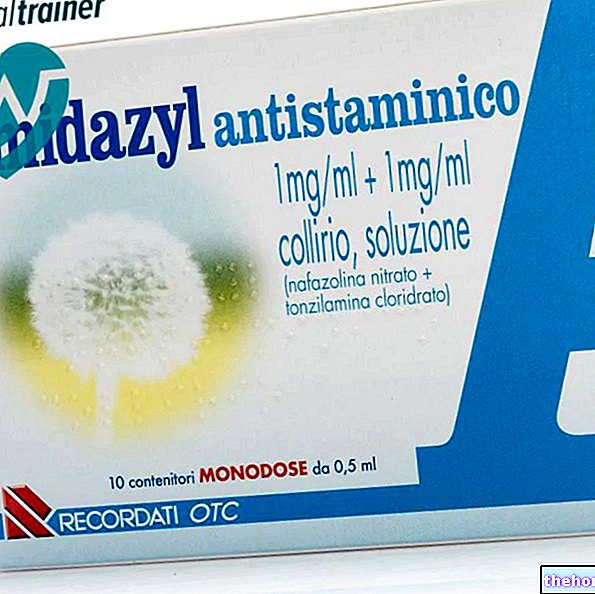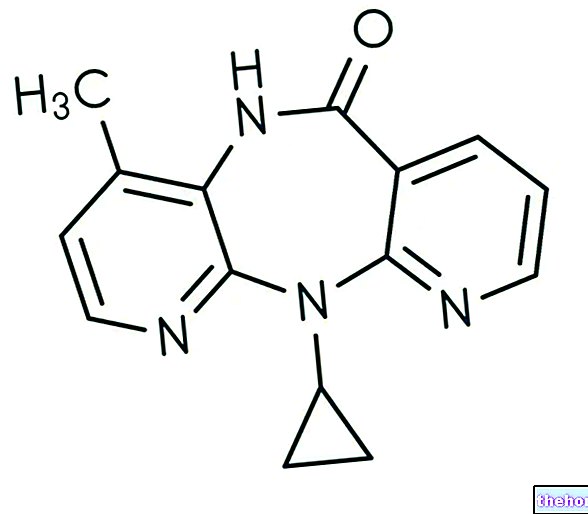ACTIGRIP fever and pain ® is a drug based on Ibuprofen Lysine salts
THERAPEUTIC GROUP: Non-steroidal anti-inflammatory and antirheumatic drugs

Indications ACTIGRIP fever and pain ® Ibuprofen
ACTIGRIP fever and pain® is indicated in the treatment of painful states associated with inflammatory states of various origins.
The efficacy of ACTIGRIP fever and pain ® has also been demonstrated in the treatment, as an adjuvant, of fever and flu.
Mechanism of action ACTIGRIP fever and pain ® Ibuprofen
ACTIGRIP fever and pain ®, is one of the many drugs on the market, belonging to the category of non-steroidal anti-inflammatory drugs, containing ibuprofen.
The great clinical success of this active ingredient is related not only to its efficacy, which has proved to be greater than that of salicylates, but above all to its reduced toxicity on the gastric mucosa, observed through recent endoscopic evidence, which significantly limits the development of gastritis and peptic ulcers.
From a pharmacokinetic and pharmacodynamic point of view, ibuprofen, once administered orally, is absorbed by the intestinal mucosa, reaching the maximum plasma concentration in just 45 minutes, and distributed to the various tissues bound to plasma proteins.
The tropism of this active principle allows ibuprofen to concentrate mainly at the level of inflamed tissues where, by inhibiting cyclooxygenases, it prevents the conversion of a membrane phospholipid such as arachidonic acid into chemical mediators with marked anti-inflammatory activity known as prostaglandins.
The aforementioned therapeutic action is also supported by the ability of ibuprofen to induce the synthesis of lipoxins, molecules capable of inhibiting chemotaxis and the adhesion of inflammatory cells involved in the genesis of tissue damage.
This biological action thus translates into a reduction of the painful and inflammatory stimulus, which is inevitably accompanied by the reduction of the classic inflammatory signs such as edema.
Studies carried out and clinical efficacy
1.IBUPROFENE IN THE CONTROL OF FEVER
Neurocrit Care. 2011 Dec; 15: 375-8.
A prospective randomized study to evaluate the antipyretic effect of the combination of acetaminophen and ibuprofen in neurological ICU patients.
Mullins ME, Empey M, Jaramillo D, Sosa S, Human T, Diringer MN.
Interesting clinical study that demonstrates how the simultaneous administration of ibuprofen and acetaminophen can guarantee excellent fever control in neurological and neurosurgical patients, improving their therapeutic course.
2.IBUPROPHEN AND INFLAMMATION OF THE CENTRAL NERVOUS SYSTEM
Respir Physiol Neurobiol. 2011 Sep 30; 178: 381-6. Epub 2011 Mar 30.
Ibuprofen blocks time-dependent increases in hypoxic ventilation in rats.
Popa D, Fu Z, Go A, Powell FL.
Experimental study conducted on laboratory animals, which demonstrates how the administration of ibuprofen can play an important role in blocking the inflammatory processes of the central nervous system, reducing some reflex mechanisms such as the increase in ventilation induced by carotid baroreceptors.
3.IBUPROPHEN AND RENAL TUBULAR ACIDOSIS
Med J Aust. 2011 Mar 21; 194: 313-6.
Life-threatening hypokalaemia associated with ibuprofen-induced renal tubular acidosis.
Ng JL, Morgan DJ, Loh NK, Gan SK, Coleman PL, Ong GS, Prentice D.
Work that denounces the appearance of renal tubular acidosis following the improper use of ibuprofen, with the consequent appearance of hypokalaemia accompanied by profound muscle weakness.
For this reason it would be advisable to consult your doctor even for products sold without a prescription.
Method of use and dosage
ACTIGRIP fever and pain ®
Film-coated tablet of 342 mg of ibuprofen lysine salt, equivalent to 200 mg of ibuprofen.
In most cases, taking 2-3 tablets daily is able to guarantee a rapid and effective remission of painful symptoms, without inducing particular side effects.
However, in patients suffering from particular inflammatory states, the dosage could be increased, always under medical indication, up to a maximum of 1200 mg daily.
Further dose adjustment should be envisaged in elderly patients or patients with liver and kidney disease.
ACTIGRIP warnings fever and pain ® Ibuprofen
The use of non-steroidal anti-inflammatory drugs, including ACTIGRIP fever and pain ®, is intended as a short-term symptomatic treatment.
Particularly long periods of administration could in fact facilitate the appearance of serious side effects, exacerbating pathological diseases already present, especially if affecting the gastric mucosa.
Particular caution is also recommended for patients suffering from renal, hepatic, cardiac and gastro-intestinal diseases, for which medical supervision would be necessary to check the state of health.
In the event that signs and symptoms of toxicity appear, it is recommended to consult your doctor immediately, stopping the therapy.
PREGNANCY AND BREASTFEEDING
The intake of ibuprofen, as well as that of other non-steroidal anti-inflammatory drugs is not recommended during pregnancy, the results of numerous studies showing that high blood concentrations of this active ingredient can compromise the correct development of the fetus, increasing the risk of miscarriage.
Interactions
The pharmacokinetic and pharmacodynamic characteristics of ibuprofen make this active principle particularly susceptible to interaction with other drugs.
In fact, the scientific literature shows how the contextual intake of ibuprofen and:
- ACE inhibitors, angiotensin II antagonists and antibiotics, may be associated with a greater risk of developing side effects mainly related to nephrotoxicity;
- Oral anticoagulants or antidepressants that inhibit serotonin reuptake, may expose the patient to an increased risk of bleeding;
- Corticosteroids and other NSAIDs, may cause an increase in the side effects expected for anti-inflammatory therapy, especially affecting the gastric mucosa.
Contraindications ACTIGRIP fever and pain ® Ibuprofen
The use of ACTIGRIP fever and pain ® is contraindicated in patients hypersensitive to the active ingredient, to structurally similar molecules and to the relative excipients.
Contraindications also extend to patients suffering from gastric ulcers, gastropathies, hepatic insufficiency, renal insufficiency and severe heart failure.
Undesirable Effects - Side Effects
The intake of ACTIGRIP fever and pain ® is very rarely associated with the onset of clinically relevant side effects, if carried out according to the intended indications.
However, the abuse of ibuprofen or prolonged administration over time, could lead to the appearance of:
- Gastrointestinal reactions such as nausea, vomiting, diarrhea, pyrosiepigastric, gastritis and gastric ulcers in the most severe cases;
- Neurological symptoms such as, headache, restlessness and insomnia;
- Dermatological manifestations including rash, urticaria and erythema.
Particularly important, on the other hand, are some epidemiological evidences that show how the prolonged intake of ibuprofen over time may be associated with an increased risk of developing nephropathies, liver diseases and cardio and cerebro-vascular accidents.
Note
ACTIGRIP fever and pain ® is sold without a prescription.
The information on ACTIGRIP fever and pain ® Ibuprofen published on this page may be out of date or incomplete. For a correct use of this information, see the Disclaimer and useful information page.




























